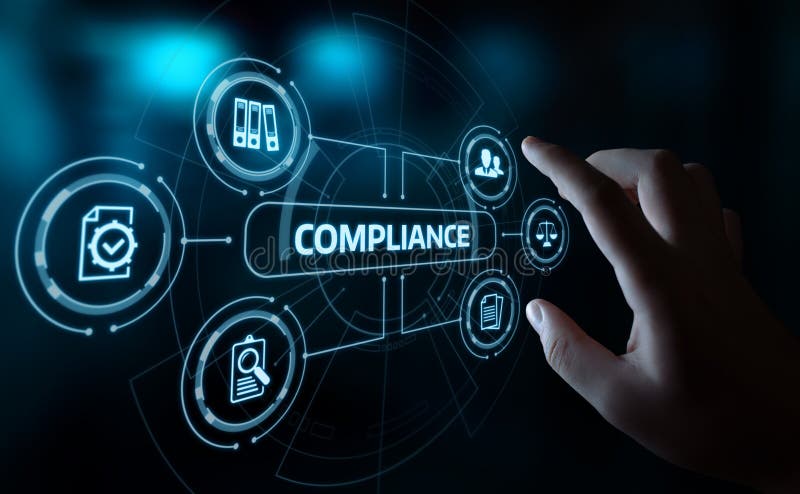The Payment Card Industry Data Security Standard (PCI DSS) is a set of requirements intended to ensure that all companies that process, store, or transmit credit card information maintain a secure environment.
The PCI Data Security Standards help protect the safety of that data. They set the operational and technical requirements for organizations accepting or processing payment transactions, and for software developers and manufacturers of applications and devices used in those transactions.
The PCI Security Standards Council (SSC) provides comprehensive standards and supporting materials, which include specification frameworks, tools, measurements, and support resources to help organizations ensure the security of cardholder information at all times.
PCI DSS Requirements:
- Build and Maintain a Secure Network
- Protect Cardholder Data
- Maintain a Vulnerability Management Program
- Implement Strong Access Control Measures
- Regularly Monitor and Test Networks
- Maintain an Information Security Policy
- Proper password protection
- Encrypt transmitted data
- Use and maintain antivirus/endpoint security
- Document policies
- SCAN AND TEST FOR VULNERABILITIES
The EU General Data Protection Regulation (GDPR) applies to any organization that processes and stores the personal data of EU citizens. With provisions including fines of up to 4% of global annual turnover or €20 million (whichever is higher) data protection compliance is now a board-level issue.
GDPR requires organizations to maintain a plan to detect a data breach, regularly evaluate the effectiveness of security practices, and document evidence of compliance. Instead of specific technical direction, the regulation puts the onus on organizations to maintain best practices for data security.
GDPR Requirements:
Lawful, fair and transparent processing
Limitation of purpose, data and storage
Data subject rights
Consent
Personal data breaches
Privacy by Design
Data Protection Impact Assessment
Data transfers
Data Protection Office
Awareness and training
The Health Insurance Portability and Accountability Act (HIPAA) sets the standard for sensitive patient data protection. Companies that deal with protected health information (PHI) must have physical, network, and process security measures in place and follow them to ensure HIPAA Compliance. Covered entities (anyone providing treatment, payment, and operations in healthcare) and business associates (anyone who has access to patient information and provides support in treatment, payment, or operations) must meet HIPAA Compliance.
Having a data protection strategy in place allows healthcare organizations to:
- Ensure the security and availability of PHI to maintain the trust of practitioners and patients
- Meet HIPAA and HITECH regulations for access, audit, integrity controls, data transmission, and device security
- Maintain greater visibility and control of
sensitive data throughout the organization
Banking & Financial
Banking
Banks, insurance companies, and other financial services firms are among the most heavily targeted and heavily regulated because of the volumes of Personally Identifiable Information (PII) and credit card information (PCI) they handle, as well as intellectual property such as deal management information and financial models.
Financial
Financial service providers of all types are expanding their offerings to allow them to compete on a global scale, save costs, and improve the customer experience with value-added services. But as financial services evolve, organizations must ensure their information security solutions are truly able to protect the sensitive data being acquired and transmitted.
CSI Offers the best solutions for the banking and financial services in order to protect their sensitive data, compress it, and encrypt it.

Governments
Stamp Duty and E-VAT
E-government solution that revolutionizes the way people interact with the Government by streamlining their operations and getting the Government closer to the people it serves. Our solution is about making ongoing enhancements to the processes, model and culture of the public sector, so that it can respond to the changing needs of its citizens
Electronic Revenue Collection (ERC)
It is a comprehensive solution for the electronic collection of Government Fees, Taxes and Custom Duties. It serves as a means to achieve a cashless environment via the introduction of Virtual Funds and automates all revenue collection processes, allowing government agencies to exploit the full capabilities of the technology to transform its services to the public.
This basic framework of the Electronic Revenue Collection (ERC) separates the collection of cash and the actual collection of fee in the revenue collection process. Under this framework cash is collected at the beginning through trusted partners i.e. authorized banks and their branches. These trusted partners will either issue e-payment modes like e-wallet, scratch cards, e-vouchers etc.… or will reload these e-payment modes, against the cash payment.

E-VAT Collections Platform
Empowers the tax authority to enforce tax laws in the digital economy by placing visibility and control back into their hands where it rightfully belongs
Enforce the collection & remittance of vat (and wht / import duties) on all e commerce / mobile money transactions automatically, upfront & directly at the point of purchase
Close the tax gap – fix the leakage of tax to e-commerce / the digital economy before casting a wider tax net
Expansion of the tax base by collecting vat on all mobile money transactions used for trade in the informal economy
Increase the collection of corporate income tax owing to the tax authority from e-commerce merchants through accurate, real-world data
Zero reliance on self-assessment or voluntary compliance thereby enforcing the collection and remittance of vat on e-commerce transactions and import duties
Streamline & automate current / future customs processes – improve compliance regarding counterfeit goods, do away with de minimis thresholds entirely & collect duties and vat for physical package goods of any value (directly at the point of purchase). enables customs to identify cross border ecommerce transactions where the value has been deliberately manipulated to abuse the de minimis threshold; invoices are split or deliberately misleading regarding content or origin
Levels the market playing field between online retailers & traditional “bricks & mortar” retailers